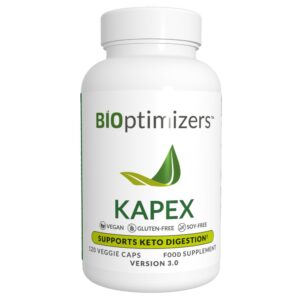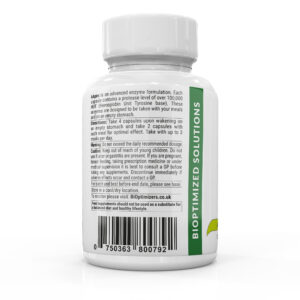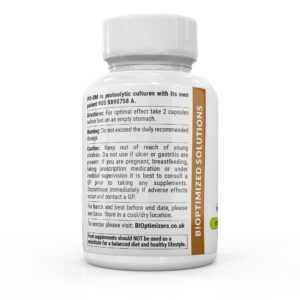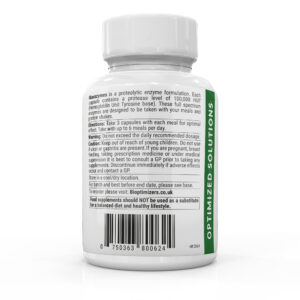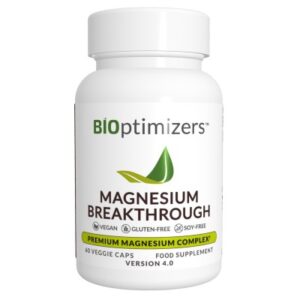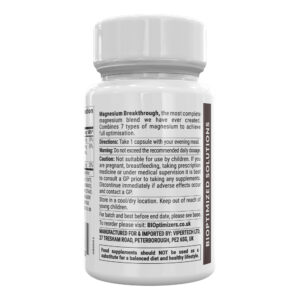METABOLISM OPTIMIZATION
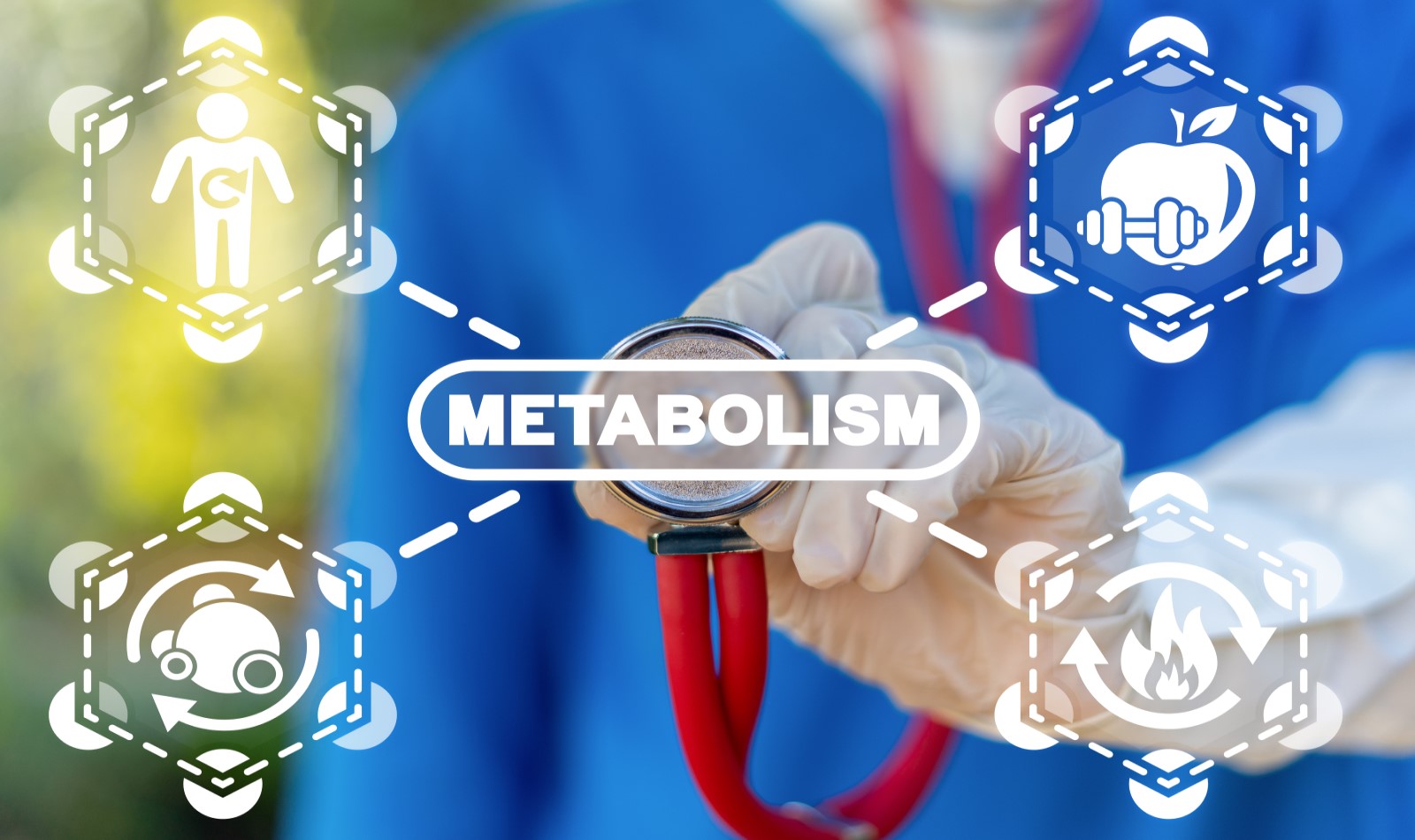
Do you need to increase your Metabolism?
If you are interested in optimizing your health, managing your body weight and looking – and feeling – your best, one element of your health that you need to understand is your metabolism and how to increase your metabolism naturally.
But what does metabolism mean? You’ve likely heard this term multiple times over when reading articles, hearing trainers or other fitness people talk, or in the latest diet book you’ve picked up recently.
What is Metabolism?
Metabolism comes with many mixed ideas, some people tend to think of a slow metabolism when they hear the term or they tend to immediately think of what types of metabolism boosters are available to speed it up.
Everyone always wants to know how to increase metabolism to burn fat faster. This is the general consensus in today’s world.
Simply put, your metabolism is the sum of all the reactions and events that take place on a cellular level on a day to day basis. Essentially, this is how much energy you burn day in and day out.
Your metabolism is constantly changing, it’s going to be far different if you were out running a mile compared to what it is with you sitting at your desk or on the couch reading this right now.
Each type of activity requires a much different level of energy expenditure and it’s your metabolism that dictates this.
The Parts Of Your Metabolism
Your metabolism can be divided up into three different parts, they are:
Your Basal Metabolic Rate (BMR)
Your Basal Metabolic Rate (BMR)
Your basal metabolic rate, which is also sometimes referred to as your resting metabolic rate, represents the amount of energy that your body utilizes just to keep very basic functions in place.
If you were to lay in bed all day long and not move a muscle, this is the amount of energy you would burn. It’s the energy required to keep your lunges taking in oxygen, your heart beating and your brain functioning.
It’s your baseline.
Now there are many different calculators you can use that will estimate your resting metabolic rate. One such calculator is called the Harris-Benedict Equation.
It’s as follows:
Males: BMR = 88.362 + (13.397 X weight in kg) + (4.799 X height in cm) – (5.677 X age in years)
Females: BMR = 447.593 + (9.247 X weight in kg) + (3.098 X height in cm) – (4.330 X age in years)
So if you like, you can plug your numbers into those formulas to get a brief estimation of your BMR.
Another (and much easier!) method of estimating this is to simply take your body weight (in pounds) and multiply by a factor of 11. Generally speaking, both numbers will come out to be around the same value.
Keep in mind, this number will fluctuate based on the individual. There are many things that can influence your metabolic rate.
Some of these include:
- Whether or not you’ve performed strength training or high intensity anaerobic exercise
- Your total lean body mass level (body fat percentage)
- The climate that you live in
- Whether or not you are on a lower calorie diet (low calorie dieting results in a slow metabolism)
- How hydrated you are
- The level of stress your body is facing
- How much sleep you’ve had the previous nights before
So this number is by no means set in stone. It fluctuates from individual to individual and even on an individual level, day by day.
Your Activity Factor
Your Activity Factor
The next component of your metabolism is your activity factor. That is, how active are you?
It only makes sense that someone who is up running around all day long is going to be using more energy and therefore will have a faster metabolism than someone who’s sitting at an office desk all day long.
Estimating your total calorie burn (metabolic rate) from your activities is pretty well impossible. As each day changes and the rate of burn will also vary depending on your own body weight and composition, the best you can do is estimate it.
To do this, you’ll simply multiply by an ‘activity factor’.
This is:
No exercise = BMR X 1.2
Light Exercise (1-3 days/week) = BMR X 1.375
Moderate Exercise (3-5 days/week) = BMR X 1.55
Heavy Exercise (6-7 days/week) = BMR 1.725
Very Heavy Exercise (activity + active job) = BMR X 1.9
So you can now use this to further estimate your numbers.
The Thermic Effect Of Food
The Thermic Effect Of Food
Finally, the last number is basically digestion. How much extra energy do you burn breaking down the foods you are eating?
Certain foods will require your body to expend more energy breaking them down (therefore increasing your metabolism) so for those seeking fat loss, these foods tend to be smarter options for the bulk of your diet plan.
Protein tends to have the highest thermic effect of food, followed by medium chain triglycerides (which are found in coconut oil). From there, carbs are next in line, followed by fats.
Now, for those eating a relatively mixed diet plan, you can assume around 10% of your BMR will be attributed to digestion.
If you eat a very high protein diet, that number may be slightly higher, however usually you don’t really need to factor this in. Consider it simply a boost to help you lose fat faster.
Keep in mind that in the equation above, this effect is already calculated into the equation, so you do not need to do anything further. If you multiplied by a factor of eleven, note that the factor of 10 represents your BMR and the added factor of 1 (to make eleven) represents this TEF value.
This said, it’s important to know that this is the third component of your metabolism and that the foods you eat do influence your metabolic rate.
So there you have the basic facts to know about your metabolism.
How To Increase Metabolism

Every decision you make on a daily basis is going to impact your metabolism in one way or another.
Therefore, you want to be only doing those things that are going to impact your metabolism in a favorable manner to reach that state of optimization.
Multiple factors come into play here.
Excercise
Increase Metabolism with Excercise
Exercise will be key to sustaining a fast metabolism and it’s the one thing that most people aren’t getting enough of.
Back in earlier times, before we spent hours sitting at our desks or had all the technological advancements we do today, humans used to spend hours walking around.
It was not uncommon for people to walk up to 20 miles per day as they hunted for their food or worked in the fields.
Today, we’re trying to get people to simply take 10,000 steps on a day to day basis – and most of the time, that is a challenge!
While there needs to be balance in all that you do and too much exercise is just as detrimental as too little, most people need more.
Always keep in mind that every single step you take, every movement you make, it’s all going to boost your metabolism.
Movement uses energy and more energy expended means more metabolic activity.
When it comes to really optimizing your metabolism, you’ll want to focus on strength training exercise especially.
This form of exercise training will create damage to your muscle tissues, which then needs to be repaired and built back up again. As this repair process is very energy intensive, this means that you’ll see an increase in your total metabolic rate.
After an intense session of weight training, you can expect your metabolic rate to increase for a period of up to 48 hours post-session. One study published in the Medicine and Science in Sports and Exercise noted that a 24 week strength training program increased absolute resting metabolic rate by 7% in both young as well as older populations.
This is a very powerful metabolic booster.
In addition to that, anaerobic exercise is also another great way to help boost your metabolic rate as it will create what’s referred to as a ‘metabolic disturbance.’
Essentially, you are utilizing so much oxygen in the body during the exercise itself that you will spend a high amount of energy after the exercise is completed bringing your body back to a state of homeostasis.
Both of these exercise varieties will take your calorie burn to the next level.
Sleep
Increase Metabolism with Sleep Quality and Quantity
The next thing that you can do that will influence your metabolic rate is pay attention to your sleep quality and quantity.
Lack of sleep puts your body into a state of stress, and as we identified earlier, this stress can lead to a lower metabolic rate.
Too little sleep will also mean you tend to be less active throughout the day, leading to a lower calorie burn in that regard as well.
Studies have shown that there is a direct correlation between the amount of sleep someone gets and their BMI (body mass index) level. One such study published in the PLOS Medicine journal noted that those who had shorter sleep duration had lower levels of leptin and increased levels of ghrelin, while also experiencing an increase in appetite and body mass index.
So if you are serious about optimizing your metabolism and keeping your body composition where you want it, it’s time to get serious about sleep.
Seven to nine hours per night of high quality sleep is a must if you hope to sustain optimal health.
Food choices
Increase Metabolism with Good Food Choices
Finally, also think about your food choices. If you are looking for metabolic boosters, the foods you eat will play a big role.
We already touched upon briefly the influence that protein rich foods have on your metabolic rate.
As protein takes a great deal of energy for your body to break down and utilize, you’ll get a nice metabolic boost after any protein rich meal you eat.
In addition to this, you’ll also want to focus, as much as possible, on eating foods in their natural state.
Whenever a food is processed, this means it’s already been pre-broken down and typically tends to contain simple carbohydrates.
When you put these into your body, very little needs to be done to break them down, meaning you are not getting much of a metabolic boost because of them.
If instead you are eating wholesome, natural foods, these will take far more work to break down into the carbs, proteins, and fats that your body uses.
In addition to that, these natural foods also typically supply far more vitamins and minerals, so it’s a big win-win for you.
kApex Boosts AMPK in muscles by 52% and fat cells by 300% – Enzyme that promotes energy production
Kapex
£59.99 – £159.99Price range: £59.99 through £159.99 — or subscribe to save 12%Rated 4.55 out of 5Select options This product has multiple variants. The options may be chosen on the product page
Blood Sugar Breakthrough Improves Energy Level, Exercise Performance and Muscle Gain
The Bucket Theory Of Optimization
When talking about metabolism, BiOptimizers like to refer to it as my bucket theory of optimization.
Essentially, you have a number of resources available to you on a day to day basis. This includes things like enzymes, probiotics, fats, proteins, carbs, vitamins and minerals. In addition to this, you also have water and oxygen if you want to go one step further.
All of these are inside your body, hard at work to help deliver you energy while ensuring all the systems of your body are working as they should.
Consider this your ‘bucket’. All of these things are tossed in and when your bucket is full, your body is running like a well-oiled machine.
What happens now if you start to take out some of those things? Let’s say you remove half the carbs and decrease the level of enzymes in your system?
As a result of this, changes occur and your body isn’t going to run as well as it should. Basically, you’ve just downgraded your metabolism.
There are two ways that this can happen:
1. You can fail to provide enough of the resources
The first way you may empty your bucket is by failing to provide the resources in the first place. If you aren’t eating a healthy diet, you won’t be taking in the vitamins and minerals you require and may be short on carbs, proteins or fat.
Likewise, if you aren’t taking a high quality probiotic or digestive enzyme, chances are you will be short on those as well.
So that’s the first place you can run into problems.
P3-OM is the Single Probiotic Strain Proven to Supercharge Digestion
P3-OM Probiotic Breakthrough
£14.99 – £159.99Price range: £14.99 through £159.99 — or subscribe to save 12%Rated 4.64 out of 5Select options This product has multiple variants. The options may be chosen on the product page
Masszymes Most Potent Enzyme Formula on The Planet
Masszymes Digestive Enzymes
£29.99 – £159.99Price range: £29.99 through £159.99 — or subscribe to save 12%Rated 4.65 out of 5Select options This product has multiple variants. The options may be chosen on the product page
2. You can deplete the resources due to outside circumstances
Second, you may also deplete your current resources far faster than you should. This typically happens if you are under a great deal of stress in any element of your life, if you are training hard, or if you are recovering from some sort of disease, illness or injury.
Your body is going through the resources faster than normal and as such, you start seeing your bucket running low.
Stress, which is often referred to as the silent killer, is so dangerous for this reason. If you are in a state of constant stress, you will be continually depleting your resources to the point where your body can no longer keep up.
It stops functioning as it should, your metabolism slows down, and soon you start gaining weight as well.
Stress can come in many shapes and forms. It could be that you lost your job, that you almost got into a car accident, that you had a big fight with your significant other the night before, or that you are worried about your financial situation.
All of these things will create what’s referred to as oxidative stress on the body, which has a very detrimental impact on your overall well-being.
This also all plays a role in your metabolic rate. When stress levels build and your bucket becomes depleted, your metabolism is going to slow.
Magnesium Breakthrough Helps You Sleep
Magnesium Breakthrough
£19.99 – £304.99Price range: £19.99 through £304.99 — or subscribe to save 12%Rated 4.42 out of 5Select options This product has multiple variants. The options may be chosen on the product page
Optimizing Your Bucket
So hopefully now you can picture this bucket containing all these resources that your body utilizes on a day to day basis to complete all the reactions that occur to fuel your metabolic rate.
Most people in today’s world are running around with about half a bucket full of resources.
In other words, we are not optimized. We’re falling short in key nutrients, we’re lacking digestive enzymes and bad probiotics have taken over our guts completely.
In order to get yourself to a state of improved bio-optimization, you need to fill up that bucket.
So your mission then becomes quite simple. For the next while (usually a period of about 90 days), you are going to overload your bucket, bringing yourself back up to a level where you can see optimal health.
Remember, you’ll still be using resources on a day to day basis, so in order to provide enough for your daily function and enough to fill your bucket back up, you’re going to need a very concentrated dose.
So this means loading up on things like digestive enzymes, probiotics, and nutrient rich foods. You want to take therapeutic levels as this is what it will take to bring you to the full bucket level.
Where did this idea of ‘superloading’ so to speak come from?
There once was a guy named Linus Pauling, who won two Nobel Prizes for his work with vitamin C. Pauling discovered that if you take very high levels of vitamin C, which acts as an antioxidant in the body, you could eliminate a lot of serious medication conditions that certain people were facing.
It seemed like this super dose offered extra powerful protection for the body that normally would not be seen at regular dosage levels.
Eventually if you keep this mega dose, you’ll end up suffering from diarrhoea (as that’s a side effect of too much of this vitamin), so once you got to that point, that was your sign that you were saturated.
You’d then decrease your dose and now you could maintain. Your bucket level was full.
So the overall concept is you take enough to completely fill your bucket up and then once you reach that stage, you can cut it back down and live on a maintenance dose.
Then if times get stressful or you face some other circumstance where you are going to start feeling depleted again, you start increasing your dosage.
As you do this, you will start to see your metabolism optimize as all these things will act as metabolism boosters.
Some of the other excellent benefits you should start noticing include:
- You have more day to day energy and don’t experience that mid-afternoon crash that you used to
- You’re able to burn fat and/or build muscle faster than you used to
- Your exercise performance has gone up
- You no longer suffer from headaches through the day like you may have used to
- You’re falling ill less often
- Your mood has improved
All of these things will go hand in hand with having an optimized metabolism.
